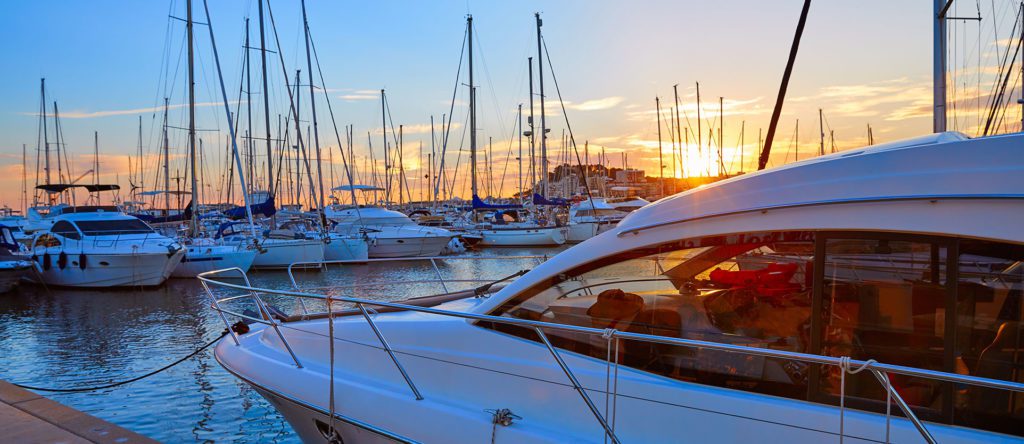
Were you injured in a boating accident? Get help.
Whether you were on the ocean, or enjoying the lakes and rivers of the Carolinas, you may be surprised how nuanced the law is.
Boating Accidents and Injuries in the Carolinas
North Carolina Ranks 4th in the Nation for Boating Accidents, South Carolina Ranks 6th
The popularity of recreational boating along hundreds of miles of inland waters and along the huge stretches of the Carolinas’ gorgeous Atlantic coastline means more boats, people, and risk. The sheer numbers of boaters can lead to a heightened risk of accidents and injuries – more people, more accidents. From 2018 to 2019, the U.S. Coast Guard (USCG) concluded that the total deaths from boating accidents increased by 8%. They’re happening all around us.
In July, 2020, a man was killed and a woman critically injured when their craft struck an object in the dark in Colleton County, SC. The man was not wearing a life jacket. In April, 2020, three people were killed in Columbus County, NC when two boats with impaired operators collided.
And if you think larger vessels don’t have injuries, think again. There are more injuries on cruise ships than most people think!
Types of Boating Accidents
Here are some of the more common types of accidents in the Carolinas. They can happen on the river, on the lake, or on the coast – any time of year:
- Jet ski, wave runners, and other personal watercraft accidents
- Water skiing accidents
- Tubing accidents
- Wakeboarding accidents
- Wake surfing accidents
- Dock collisions
- Slips and falls
- Carbon monoxide poisoning
- Fire or explosion
- Electrocutions
- Swimmers and skiers run over by watercraft
Many people who are injured in boating accidents are minding their own business and enjoying some fun out on the water. It takes someone acting irresponsibly to turn that fun into an injury or even death.
Primary Causes of Boating Accidents
Negligence and carelessness are the most common causes of boating accidents, but those take many forms:
- Operator Impaired by Alcohol or Drug Use
Weighing in at #1 is alcohol and drug use, according to the USCG. While boating is a great way to relax and have fun, use of alcohol and/or drugs can bring the fun quickly to an end. In the 2020 news report above, both operators were impaired, and both survived to be charged – only passengers in their boats were killed.In North and South Carolina, it is legal to have open containers of alcohol on a boat, and even drink while operating one. However, it is illegal to operate the boat while impaired. In both states, a blood-alcohol content of 0.08 is automatically considered impaired – the same as it is for drivers on the road.
- Operator Inexperience
Safe and proper boating requires understanding boating controls and safety regulations, experience, and focus. Requirements vary between North and South Carolina, so check with authorities, especially if you’re injured by another boater, to ensure proper documentation. Operators who do not follow or understand the regulations risk injuring their passengers, themselves, other boaters, swimmers, and anyone else on the water or on the docks. Personal watercraft account for a large percentage of injuries on the water. In many cases, young, inexperienced operators are driving wave runners. - Operator Negligence
There are numerous distractions that take away operator focus, including passengers, cell phones, other boaters, water conditions, tides and currents, and weather conditions, for starters. Driving a boat, like driving a car, demands complete attention. Anything less could be seen as negligence. - Ignoring Rules of the Water
Ignoring navigation rules regarding passing other boats, crossing paths with other boats, appropriate speed limits, and restricted area markers and channel buoys can lead to dangerous situations for those on board, on shore, and in the water. Just like any highway accident, ignoring navigational safety rules can result in punishment, fines, and lawsuits. Being ignorant of these rules is no defense, either. - Faulty Equipment
It is the responsibility of the boat owner to ensure that the boat, its equipment, and ancillary equipment such as life jackets, are in proper working condition. The operator should also be aware of these aspects before setting off. - Hazardous Waters & Weather Conditions
Water and weather conditions are subject to constant change – sometimes within minutes. Boating operators should be mindful of changing tides, currents, waves, and wakes from other boats. Never ignore weather alerts.
Boating accidents are rarely accidents. There is almost always a cause, and when that cause is someone’s recklessness or negligence, injured parties have rights. A boating injury attorney can help you build your case for compensation.
Consult an Experienced Boat Injury Lawyer
If you or a loved one has been injured in a boating accident due to someone else’s negligence or recklessness, contact the Law Offices of James Scott Farrin. Call 1-866-900-7078, chat with us, or contact us online for a free case evaluation.
- Medical expenses, including those for hospitalization
- Loss of wages and benefits
- Permanent injury costs
- Pain, suffering, and emotional distress
Tell them you mean business!


